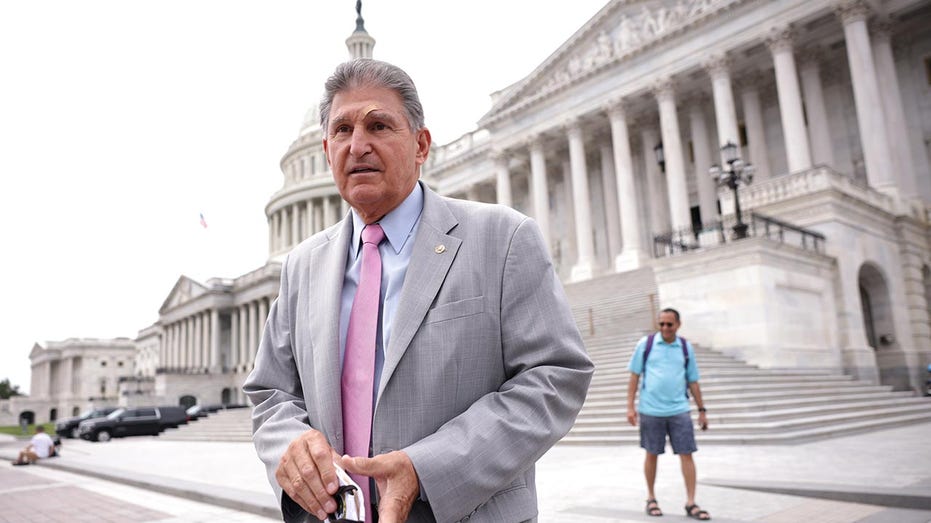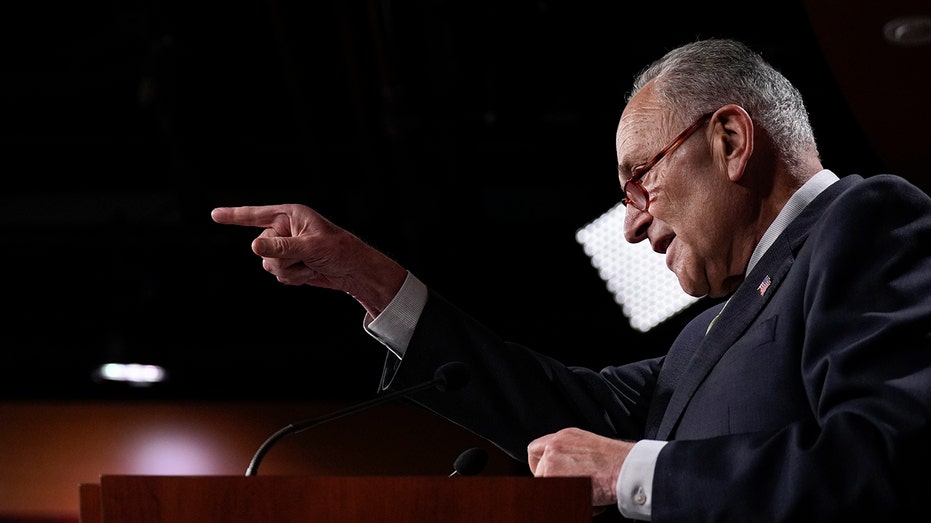Manchin-Schumer spending bill will have 'indistinguishable' effect on inflation: Penn Wharton
Dems' newest inflation-fighting initiative could have little impact on rising prices
Manchin and Schumer reach deal on energy and tax bill
Rep. John Katko discusses the latest on the energy and tax bill that was passed in the House and why he voted for it on ‘Fox Business Tonight.’
Democrats are pitching their newest health and climate spending bill as an inflation-fighting measure, but a new analysis published Friday suggests the legislation will actually do little to combat higher prices.
Findings from the Penn Wharton Budget Model, a nonpartisan group at the University of Pennsylvania's Wharton School, show the initiative would have an impact on inflation that is "statistically indistinguishable from zero."
"The Act would very slightly increase inflation until 2024 and decrease inflation thereafter," the analysis said. "These point estimates are statistically indistinguishable from zero, thereby indicating low confidence that the legislation will have any impact on inflation."
The bill could add just 0.05 percentage points to inflation in 2024, but would likely reduce consumer prices by an estimated 0.25 percentage points by the late 2020s. Most economists expect inflation to subside in coming years as pandemic-induced bottlenecks in the supply chain dissipate and the Federal Reserve hikes interest rates to cool consumer demand.
MANCHIN-SCHUMER SPENDING BILL TARGETS TAX LOOPHOLE FAVORED BY INVESTORS

Sen. Joe Manchin, D-W.Va., leaves the Capitol in Washington following a vote on Aug. 3, 2021. (Kevin Dietsch/Getty Images / Getty Images)
The initiative, repackaged by Democrats as the Inflation Reduction Act of 2022, would raise an estimated $739 billion over the next decade by increasing IRS funding, establishing a 15% minimum corporate tax targeting companies' book income, allowing Medicare to negotiate prescription drug costs and closing a popular tax loophole used by private equity and hedge fund managers.
Revenue raised by the policies would go toward initiatives designed to combat climate change and curb pharmaceutical prices, as well as efforts to reduce the nation's $30 trillion debt. It includes about $433 billion in new spending, while roughly $300 billion of the new revenue raised would go toward paying down the nation's deficit.
IS THE UNITED STATES ENTERING A RECESSION?
Senate Majority Leader Chuck Schumer, D-N.Y., and Sen. Joe Manchin, D-W.Va., introduced the legislation Wednesday evening in a stunning reversal that marked a potential revival of President Biden's long-stalled economic agenda. Manchin had previously rejected another round of federal spending, warning that it could further exacerbate inflation, which has remained stubbornly high. The government reported earlier this month that consumer prices surged 9.1% in June, the fastest pace since 1981.

Senate Majority Leader Chuck Schumer, D-N.Y., speaks to reporters during a news conference at the Capitol in Washington on Thursday, July 28, 2022. (Drew Angerer/Getty Images / Getty Images)
"This is the action the American people have been waiting for. This addresses the problems of today — high health care costs and overall inflation — as well as investments in our energy security for the future," Biden said Wednesday in a statement.
CLICK HERE TO READ MORE ON FOX BUSINESS
Still, it is unclear whether this particular tax proposal will make it into the final legislation. Sen. Kyrsten Sinema, D-Ariz., is a crucial vote in the 50-50 Senate and, in the past, declined to support ending the break for carried interest. A spokesperson for Sinema has said she is still reading the legislation and has not yet made a decision on whether to support it.





















